Is it right to train babies to sleep?
- Published
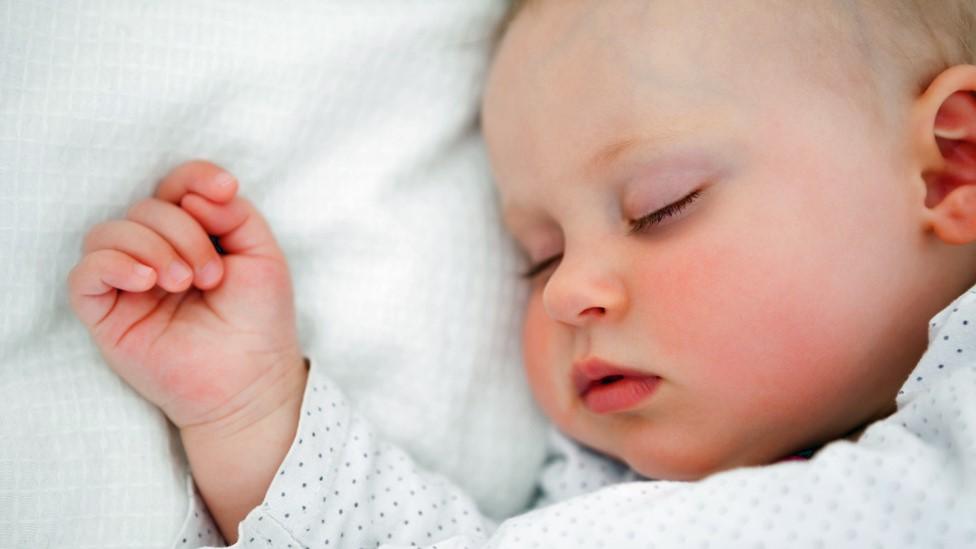
In the last five years there has been a big increase in the number of consultants who say they can train babies to sleep through the night without waking or demanding to be fed. This may be great for parents, if they can afford it. But there are disagreements about how good it is for the child.
It's 2am and if you are the parent of a baby who does not sleep well you may well be pacing up and down in your baby's room trying to get your little one off to sleep.
Cold, tired and craving the comfort of your bed, you may be rocking or feeding the wailing child, singing, or just sitting by the cot holding a little hand - anything to get him or her to drift off again.
Anna Cormack from Manchester knows what sheer exhaustion feels like. She has three children - Johnny, the youngest, is 15 months old and wakes up at least two to three times in the night for breast feeds. Cormack feeds him to sleep and has not had a full night's rest since he was born. Her partner frequently works at night, so night-time parenting falls to her.
"When it's really bad I probably only get two-three hours' sleep in the night," she says. "What every parent would tell you is that it's the cumulative effect. You can do one night, even two, but it's constant. Night after night it has an effect on you."
More than half of a group of 7,500 parents who took part in a survey released last week by The Children's Sleep Charity and Netmums said their child woke at least once a night, and 35% said they were regularly sleep-deprived and exhausted, external - and this included parents whose children were no longer babies.
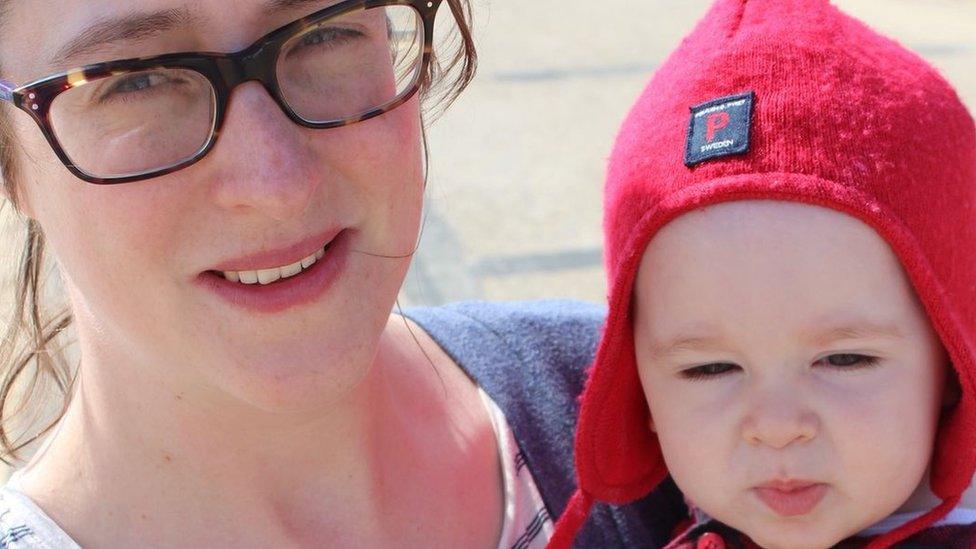
Cormack would like her son Johnny to sleep better at night
Cormack says she copes well but would like to have more energy and creativity, and better memory.
"I often can't be bothered to go out to groups [or] see friends because I am too tired. Also it makes me obsessed with Johnny having his naps at home so I can nap too, which makes me quite house bound," she says.
This is the kind of experience that might make some parents these days consider hiring a sleep consultant. There weren't many of them around 10 or 15 years ago but the number has rapidly increased in the UK in the last five years, says Julie Cleasby, European Regional Director for the Association of Professional Sleep Consultants.
Cormack was put in touch by the BBC radio programme You and Yours with Katie Palmer, a former nanny and mother-of-three who co-runs Infant Sleep Consultants with two other women.
Like many other sleep consultancies, the company offers a range of packages, from telephone and online support, to home visits and overnight stays. The last of these would be easily affordable by someone like the chef, Jamie Oliver, who recently hired a night nurse for his newborn River Rocket, but might be a stretch for many parents.
Palmer says it's very common to come across a child like Johnny who won't go back to sleep after waking at night without being breast-fed.
"When we say we sleep through the night, none of us actually sleep through the night," she says. "We all naturally wake several times a night, it's kind of a caveman instinct where you would wake to check for predators."

Find out more
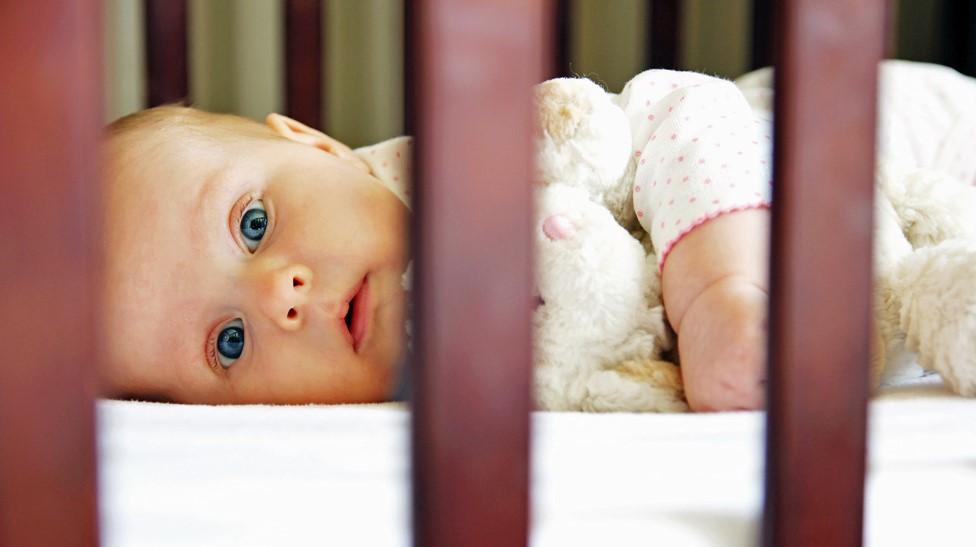
Listen to a report on sleep consultancy on BBC Radio 4's Call You and Yours, with Prof Helen Ball of Durham University and James Wilson, a sleep consultant with the Children's Sleep Charity

Children have much shorter sleep cycles than adults and can wake more than 10 times a night, Palmer says, and what parents need to do is to help their child knit these sleep cycles together.
In Johnny's case, she says she did not immediately eradicate all of his night feeds but set up a schedule where these were gradually reduced to just one per night. She says this gave Cormack and Johnny clarity about when he would be settled back to sleep and when he would be fed. After this she introduced a sleep training programme called "gradual retreat".
"So, for example, the first time Anna fed him, she put him down in the cot and then she sat next to him and patted and stroked him until he fell asleep. And then, when he accepted that, she just sat next to him, not patting him. Then she moved further away and further away until she could go out the door," says Palmer.
Johnny cried intermittently for around 15 minutes on the first night, Palmer says, but then accepted the changes to his bedtime routine. There are children who cry for longer, though, and in this case she says the parent should be a comforting presence. What parents shouldn't do is to give the baby mixed messages by reverting to feeding him or her to sleep.
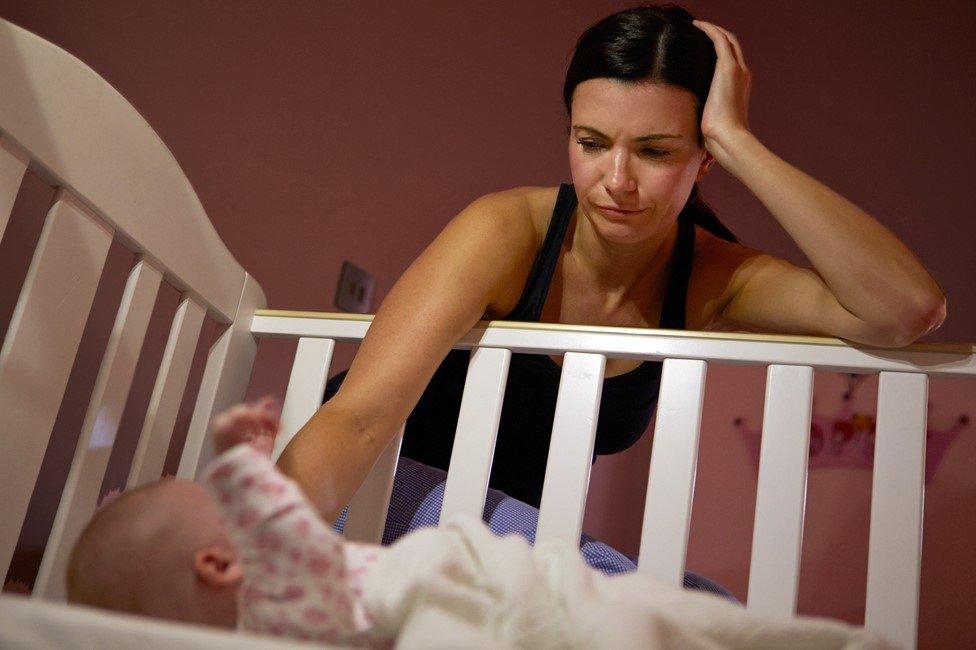
Many people find the lack of sleep the hardest thing about being the parent of a baby or toddler
"There aren't always tears, but I think the majority of the time there is," says Palmer. "I think that if there was a guaranteed no-cry sleep solution I wouldn't have a job, because it would be out there and every parent would do it."
Although she does not advocate the "Cry it Out" technique, where a baby is placed in the cot at bedtime and the parent does not return, even if they cry, she does sometimes use a form of "controlled crying", where the parent leaves a child's bedroom, but returns at short intervals to comfort the baby.
Some researchers who have studied the effect of leaving a baby to cry have measured elevated levels of the stress hormone, cortisol, and it's been speculated that this could harm the child's emotional development. Another study, however, found no negative effects on children five years after they had been sleep-trained with this technique. So the picture is unclear.
"Any kind of crying is stressful… and it does raise cortisol levels," says Palmer. "However sleep deprivation also isn't great and can do long-term damage as well, and I think it's deciding what is more sustainable and what you believe."
Palmer admits that sleep training is not for everybody. She says you should never sleep-train a baby under six months old, or if there is an underlying reason that has not been addressed - like reflux or colic. Also, the parent needs to be in the right frame of mind and shouldn't feel pressured to do it by friends or family.
But should we even be attempting to sleep train babies at all?
"If you look at the research, what we know is it's entirely normal for a child to wake regularly at night until about two-and-a-half years of age," says Sarah Ockwell-Smith, author of The Gentle Sleep Book.
Many parents believe their child has a sleep problem, she says, when in fact it is just normal infant sleep.
She says she sees mothers who have tried sleep training and it did not work for them, or it initially worked, but then a few months down the line their child's sleep had become worse.

Sleep statistics
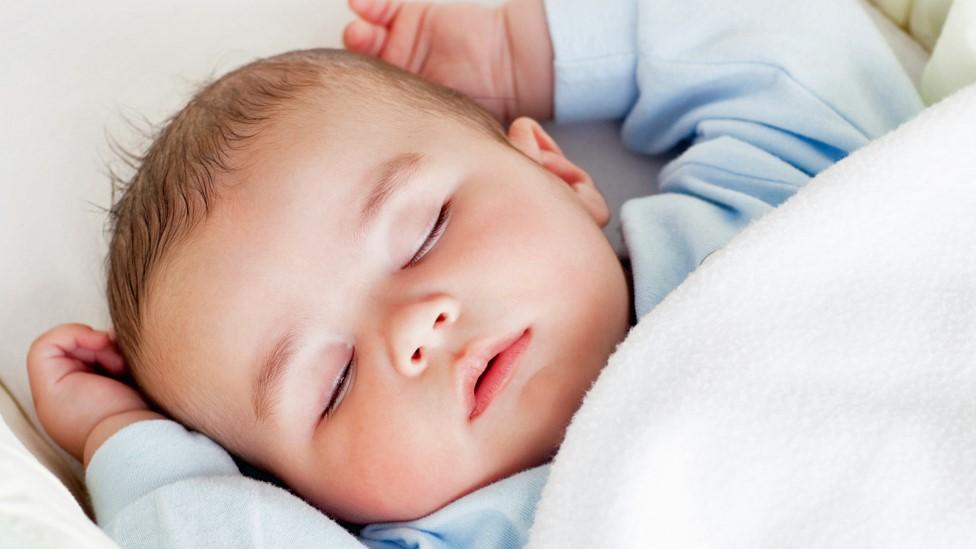
According to the report - Sleep: what is normal at six months?, external - part of the Avon Longitudinal Study of Pregnancy and Childhood:
Only 16% of babies slept through the night at six months old
50% of babies woke occasionally
9% of babies woke most nights
17% of babies woke up more than once per night, ranging from twice to eight times
16% of six month olds had no regular sleeping pattern
61% of babies slept in a room on their own by six months old, but 15% were usually or always brought into their parent's bed if they woke up

"We always make it out that the baby's got the problem and it's the baby that needs to be fixed, when actually I think it should be the parents adjusting things," says Ockwell-Smith.
"So I would help parents to look at things like, 'Is the environment right? Is the baby eating something that's causing an issue, is there something physiological underlying it, is it something to do with the timings of things that's causing an issue?'"
In her view, it is totally natural to feed a baby to sleep.
"If you look at any other mammal - if you go to the zoo - the babies will all fall asleep with the mums holding them, so that's normal, that's how it's meant to be," says Ockwell-Smith.
"If they've fully woken it's because there's a problem, but the parent coming in feeding them or cuddling them will resolve almost any problem… I've worked with thousands of parents who still rock and feed their babies to sleep and they've managed to increase sleep."
Ockwell-Smith says she finds that once parents are aware their baby's interrupted sleep is normal then their fears are often allayed.
"I don't think we should be embracing the fact that we're just not going to sleep," says Ockwell-Smith. "It is normal, but it's also incredibly exhausting and there normally are some tweaks you can make that will make an improvement, but I think we should expect some waking as normal and embrace it.
"Nobody in 10 years' time is going to think, 'Oh I wish I hadn't hugged my baby so much'. You're not going to regret rocking your baby to sleep or feeding them to sleep."
Ockwell-Smith says she is concerned that the sleep consultant industry is unregulated and that anyone at present can set themselves up to practise. Palmer would also welcome regulation in order to keep standards high, and she advises parents to do as much research into practitioners as possible before hiring them.
Prof Helen Ball of Durham University argues that it's crucial for parents to ensure that their consultant sticks to safe infant sleep practices, external - and does not, for example, advise putting babies to sleep on their tummies, which dramatically increases the risk of Sudden Infant Death Syndrome.
How did sleep training work for Anna Cormack and Johnny?
After three-and-a-half weeks of the programme, Johnny now wakes up once in the night at around 1am or 4am. He is also falling asleep on his own in the cot without being breast-fed.
And after 15 months, Cormack is finally getting more sleep.
Join the conversation - find us on Facebook, external, Instagram, external, Snapchat , externaland Twitter, external.